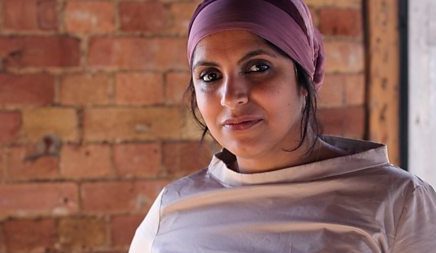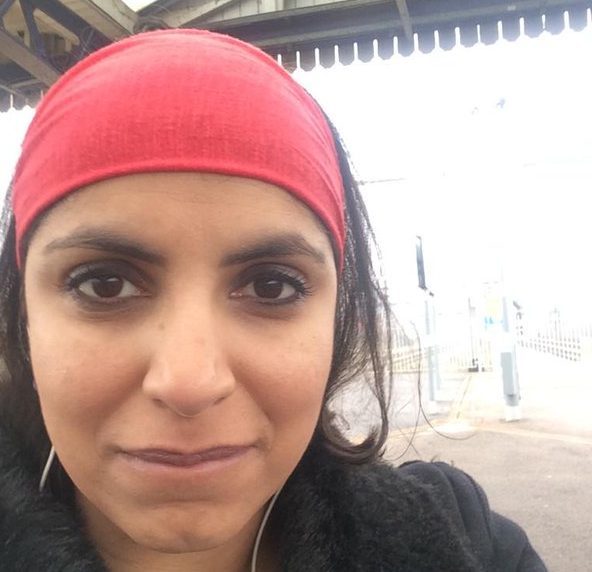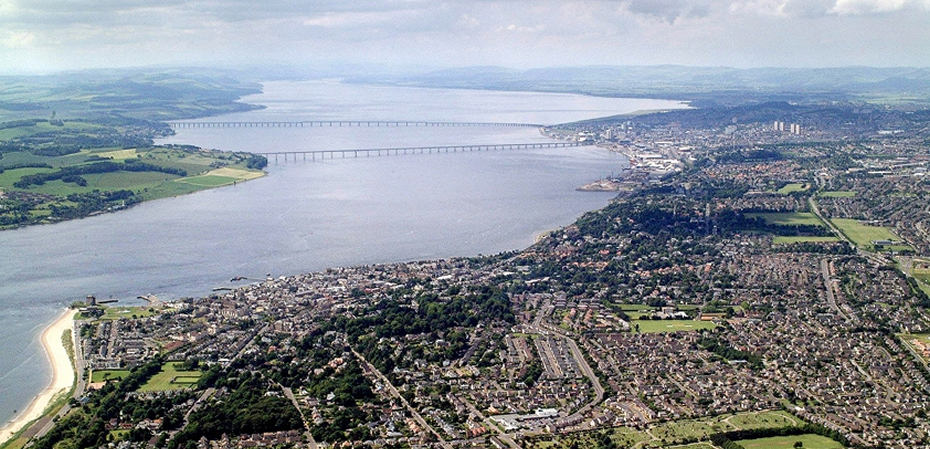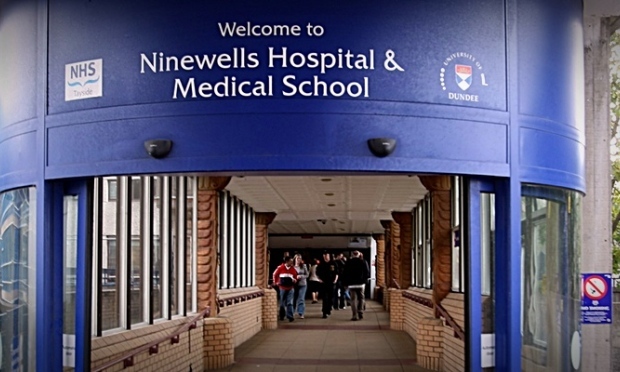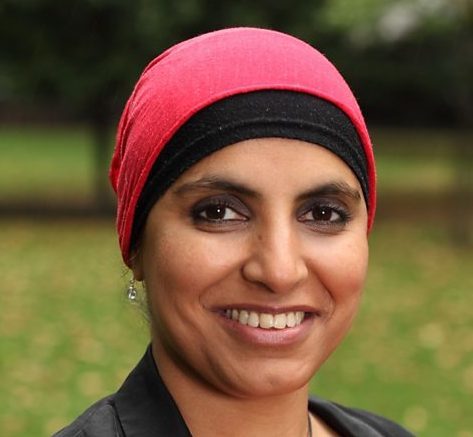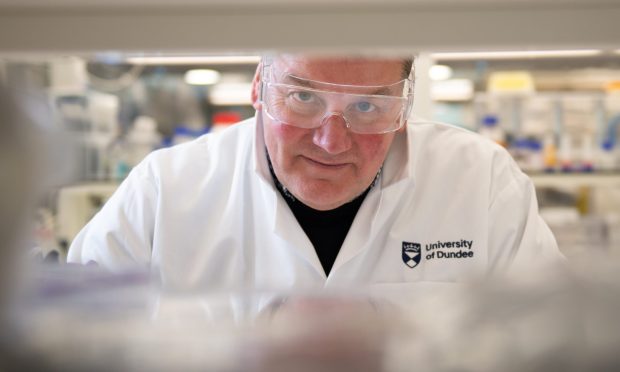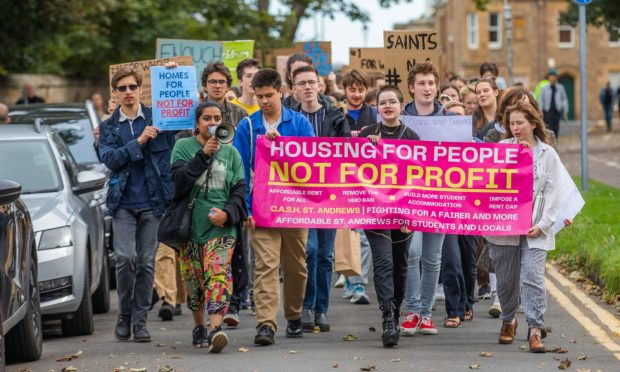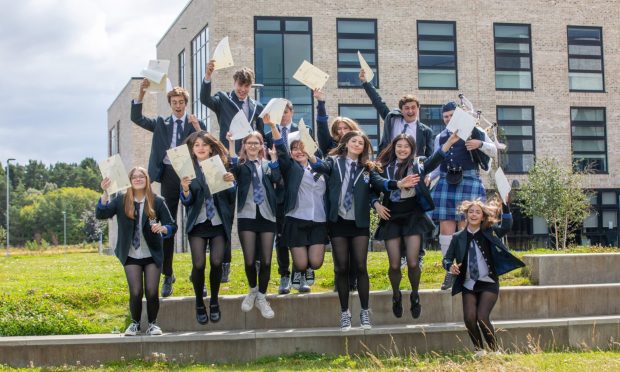Ahead of a prestigious Dundee University lecture, TV doctor and former British Army officer Dr Saleyha Ahsan tells Michael Alexander how her five years in Dundee prepared her for a unique career across medicine, media and humanitarianism.
As an A&E doctor, freelance film maker and former British army officer, Dr Saleyha Ahsan has had her share of front-line experiences around the world.
But if there’s one place where the 46-year-old has ever felt most at home, it’s in Dundee.
Dr Ahsan graduated from the Dundee University School of Medicine in 2006 after serving with the Royal Army Medical Corps in Bosnia.
In fact she was the first British Muslim woman to graduate from the Royal Military Academy Sandhurst as an army officer.
As well as her work as an A&E doctor Dr Ahsan has forged a career in television, having appeared on ‘Trust Me I’m A Doctor’ and ‘The One Show’.
But it’s the five years she spent in Dundee as an under graduate, and how this made her the doctor she is today, that she’ll be focussing on when she gives the last of the university’s prestigious Saturday evening lectures on May 13.
“I’m going to talk about how Dundee kind of shaped my future and how important it was in helping me to carve out my career the way that I wanted to,” she explained, speaking from her base in North Wales.
“I’ve got siblings who were medical students down in London and we used to compare notes and ways of doing things.
“I still think that what we did in Dundee really really worked for me and helped me to be the doctor that I am today. Dundee medical school was innovative, it was opened minded, it was happy to consider left-field ideas.
“It also sent me all over Scotland which gave an incredible breadth and depth of experience.
“Being invited back to speak during this really important year at Dundee as part of the Saturday lecture series, is massively important to me. I’m really really chuffed.”
Born and raised in Essex, the daughter of two teachers studied at a “not particularly aspirational” inner city comprehensive school and studied chemistry at Salford University.
There, she developed her love of the outdoors through the Army Cadets and, after a spell working as a radio journalist, decided, aged 25, to go full time with the army.
It was in 1997 while serving in Bosnia as a medical support officer as part of a NATO stabilisation force that she decided her future lay in medicine.
She said: “Our role there was to keep all sides apart so that they could actually get on with the voting they needed to do.
“And it was while I was there I saw some horrific trauma that my soldiers dealt with- people who were stepping on landmines, getting their legs blown off, because their homes were booby trapped by the opposing side.
“I saw the amazing work of military medics looking after them and thought I wanted to do medicine. It’s actually 20 years ago this summer that I had that experience. My company commander supported me and wrote my reference.”
Applying to Scottish universities to be close to the mountains she had got to know well during military training, she was turned down by Aberdeen University and received unconditional offers from Glasgow and Dundee.
But what swung it for Dundee, where she matriculated in 2000, was that they allowed her to defer for a year when she was offered the chance to take part in the Army Millennium expedition to climb 21,000 feet high Pokalde in Nepal.
“The fact Dundee let me climb showed how forward thinking they were,” she smiled, “and that’s kind of how Dundee medical school has always been. It’s been nurturing instead of restrictive. And because of that I’ve carried it on through the way I practice medicine.
“My first ever visit to Dundee was for my interview and I remember just feeling so welcome.
“It was a real campus university and had a really good vibe to it. Dundee I loved as a city. It felt like home when I came. And the fact they embraced my conservative background.”
Saleyha juggled working as a freelance journalist while studying in Dundee and, again, the university were “very supportive”.
“I went off and made films in different parts of the world,” she added.
“The medical school supported that in that they would allow film screenings and conferences around my work. I even got to show one of my feature length documentaries in Dundee Contemporary Arts called ‘Article 17: Doctors in Palestine’.
“In 2002 we had the uprising in Palestine. I got really excited to learn about the twinning of Dundee with Nablus. I actually spent a few months during my 2002 summer holidays in Nablus making my film.
“It just felt like the right place to be. I went out, shot on my own, brought back all the rushes and edited it with the masters’ students of film from Duncan of Jordanstone College of Art.
“So it was a real inter-speciality, inter-college thing.
“To be honest, that was such an amazing introduction to film making I’ve yet to replicate something as seamless as that. But it happened in Dundee!”
Graduating in 2006, she was “tempted away” to do her foundation training in Glasgow and Edinburgh – and now regrets not staying at Ninewells.
She went on to work in A&E in London and is now a clinical fellow in emergency medicine in three hospitals, based in Bangor, North Wales.
But she worries about the future of the NHS and fears too many people “take it for granted”.
“As a journalist my position is really fortunate to be able to bring the realities of what we face within the NHS, within the shop floor, to a wider audience – because the NHS isn’t just something that doctors need to care about.
“Absolutely everyone needs to care about it. It’s really important. Because when it’s gone, it’ll be gone. And you’ll miss it when it’s gone. I think there’s too much taking it for granted at the moment. Everyone needs to take responsibility. And I feel passionately about that.”
More than a decade since she graduated,Saleyha has not ruled out a return to working in Dundee – and can’t wait for her visit.
“When I lived in Dundee and I used to go to Tesco Riverside, I used to say ‘you know what? It’s got the best view’ because you are standing at the checkouts staring out over the silvery Tay. I used to think why’s there not more to it? I’d love to sit down and have a coffee there.
“So I’m just so excited to hear about the V&A! Who knows, I might be back!
“I come back to Scotland every year and I haven’t been back to Dundee for a few years now. But I kind of only feel like I’m temporarily away, if that makes sense.
“I remember driving along Perth Road and I remember thinking you know what, this is the first time I’ve ever really felt at home, which is bizarre because when I grew up in London, the plan was always to get out of London.
“With the army, nowhere was ever home. You were just on the move all the time.
“In Dundee, it just felt like home and I don’t think anywhere else has ever felt like home in the same way.
“My plan is to move back to Scotland. It’s just what part of Scotland?
It’s going to be east I think. And I think Dundee will be a strong contender if it’ll have me back!”
- Dr Saleyha Ashan is speaking in the Dundee University Dalhousie Building on Saturday May 13 from 6-7pm. Free tickets for this event are available by visiting dundee.ac.uk/sels, emailing events@dundee.ac.uk, calling 01382 385108 or from the university’s Tower Building reception.
- Next week The Courier will be publishing a special 32-page supplement to celebrate the 50th anniversary of Dundee University
